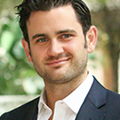Is social media hurting dentistry? The problem (part 1)
I’m a firm believer that humanity creates technology far faster than we adapt ourselves or our societies to that technology. We create a thing, but then it can take decades for us to fully adapt to it on a psychological or cultural level. Pick any historical example you choose, from the steam engine to the telephone, and you’ll find that our responses to technological progress are often reactive and messy. We invent fire and then proceed to burn down ourselves and our villages with it until we eventually figure out how to use it properly. OK, perhaps that’s an extreme metaphor, but I think it’s fitting when discussing the introduction of social media.
I define social media as the technologies that allow us to create and distribute content and create communities to participate in said content. I believe it is self-evident at this time that we as a society are still learning about the unintentional accidents and the intentional abuses of social media. I will refrain from discussing matters such as echo chambers and bot manipulations here. What I do want to discuss is how we, as the dental community, can rise above the fray and protect professionalism and standards of care.
I wrote about our dilemma in the Journal of the American College of Dentists in an article titled, “Can a dentist maintain standards on social media?” Here’s a brief summary. Traditional media, such as live lectures and journals, have filters in place that maintain professionalism and standards of care. As the chief editor of Dental Economics, I don’t publish content that advocates for unethical conduct between dentists or that demonstrates poor clinical practices. Traditional media also has checks and balances in place if the filter fails. I report directly to a publisher and a media company, and I’m beholden to the audience who reads DE and the advertisers who support it.
Social media does not have the same filters or checks and balances in place as a publishing company. Rather than relying on editors, meeting planners, or the ADA CERP, it is up to individuals to maintain professionalism and standards of care. I think we can do a better job.
Hop into one of your Private Facebook Groups or Instagram feeds. Our professionalism is threatened every time a conversation between colleagues devolves into a nasty argument. Our standards of care are eroded each time someone shares content that demonstrates a poor clinical technique/result or an unethical practice. (The exception is when someone shares a poor technique/result and is actively seeking counsel.) So, my question is this: how do we critique each other on social media for the sake of our standards while still maintaining professionalism?
The printing press democratized the consumption of knowledge. Social media democratized the creation of it. Content creators, without traditional filters or checks and balances in place, can inadvertently wear away at the foundations that make dentistry the noble profession it is. In Part 2 of this article, I’ll attempt to provide specific ways we can preserve those foundations. As a profession, we cannot afford to be reactive to social media technology; we must get ahead of it.
Chris Salierno, DDS, is the chief editor of Dental Economics and the editorial director of the Principles of Practice Management and Group Practice and DSO Digest e-newsletters. He is also a contributing author for DentistryIQ and Perio-Implant Advisory. He lectures and writes about practice management and clinical dentistry. Additional content is available on his blog for dentists at ToothQuest. Dr. Salierno maintains a private general practice in Melville, New York. You may email him at [email protected].
About the Author

Chris Salierno, DDS
Chief Editor, Dental Economics
Chris Salierno, DDS, is the chief editor of Dental Economics and the editorial director of the Principles of Practice Management and Group Practice and DSO Digest e-newsletters. He is also a contributing author for DentistryIQ and Perio-Implant Advisory. He lectures and writes about practice management and clinical dentistry. He maintains a blog to answer patient questions at ToothQuest. Dr. Salierno maintains a private general practice in Melville, New York. You may contact him at [email protected].
Updated Dec. 4, 2020
